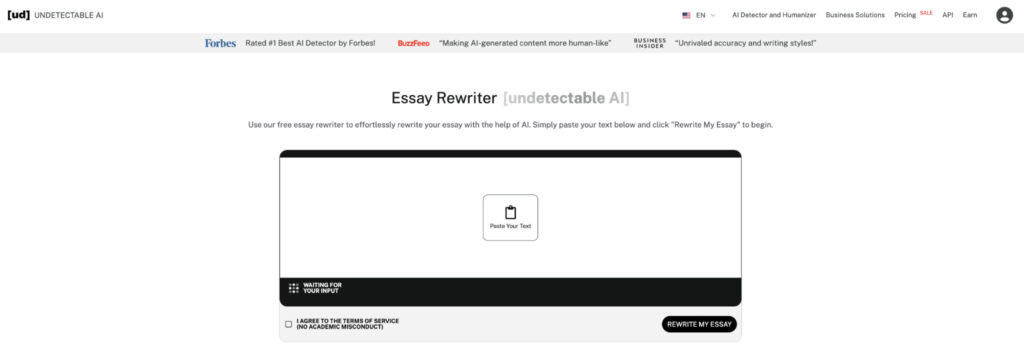With steam coming out of your coffee mug and the rain lashing the windows, there’s nothing better than curling up with your laptop, safe in the knowledge you have no job to go to and no commute.
With flexibility, freedom, and the chance to make money doing something you genuinely like, freelance writing jobs are in demand.
But where can you land a dream job that lets you write from your PJs?
Where do you find clients? How do you set your rates? And what writing work is out there, anyway?
Freelance writing can be one of the most rewarding (and surprisingly lucrative) career choices out there, if you only knew how to get started.
This blog will walk you through 15 smart ways you can make money as a writer.
What Is a Freelance Writer?
A freelance writer is someone who gets paid to write, but who works for themselves, with no single employer and no regular paycheck.
A freelancer has their own freelance writing business, and works on a project-by-project basis, picking up gigs from a range of different clients.
Unlike traditional employees, freelance writers get to decide when, where, and how they work.


Never Worry About AI Detecting Your Texts Again. Undetectable AI Can Help You:
- Make your AI assisted writing appear human-like.
- Bypass all major AI detection tools with just one click.
- Use AI safely and confidently in school and work.
But that freedom comes with a price.
There’s no guaranteed income at the end of the month, no sick pay or vacation time off… and the honest truth is that you’ll spend almost as much time hunting for clients as you will writing for them, especially in the beginning.
Once you get your career going, though, it’s absolutely possible to earn significant money.
Skilled writers can earn over $10,000 a month with hard work and a reliable reputation, and many freelance writers can earn the same as a full-time job with just a few regular projects.
Why Consider a Career in Freelance Writing?
So, is the risk of going freelance worth it?
Well, apart from the potential income, freelancing definitely has its advantages.
One of the biggest reasons people love to freelance is that they can work on their own terms.
Fancy a late start? Want to write articles from your bed or sofa? Work best at midnight?
Freelance writing lets you design your workday in a way that works best for you.
Freelance writing is also super varied.
One day, you might be crafting blog posts for a travel company, and the next, writing social media captions for a cool online coaching business.
Not to mention the business aspect, sending out invoices, hunting for jobs, networking with potential clients.
Freelance writing keeps things interesting.
You’re always learning something new and not stuck doing the same thing day in, day out.
It’s not all easy, though.
Freelancing requires confidence and a thick skin for when things don’t go to plan.
Imagine getting some terrible feedback, or a difficult client shouting at you if something has gone wrong.
Imagine the fear of not having regular money hit your account – would this impact your life? If yes, then this might not be the career choice for you.
How to Make Money as a Freelance Writer
But if the advantages have got you more excited than the drawbacks, then let’s dive into how to make money as a freelance writer, and what you can do to get started today.
1. Develop Your Writing Skills

First things first: successful freelance writers are obviously experts in their craft.
They’re good writers and have a real talent for transforming ideas into the written word.
So what does a ‘good writer’ mean?
Well, you don’t need to be the next Shakespeare.
But you should at least be able to write well and be willing to learn and improve.
Look for opportunities to improve regularly and ask for feedback when you’re getting started.
Then, pay attention to that feedback and implement it going forward.
2. Build a Writing Portfolio
Next, it’s time to get serious about having writing samples that show off what you can do.
No one’s going to hire you just based on your say so.
You’ll need a writing portfolio.
This doesn’t have to be fancy, but it does need to include a variety of samples that show off your writing style.
If you’re just starting out, don’t panic.
You can create your own samples by writing blog posts, product descriptions, or even mock press releases.
Or, if you want to start writing blogs, another great tip is to ask blogs or websites you like for opportunities to write guest posts for free.
The goal is to give potential clients a taste of your style and expertise with actual samples they can read for themselves.
3. Choose Your Niche

When you’re starting out, it’s tempting to say yes to every style of job.
But freelance writing covers a huge range of industries and styles, so narrow your focus.
Picking a niche for your writing services makes it easier to market yourself and attract clients who need specific skills and knowledge.
Not sure what niche to choose?
Think about your interests and past experiences.
If you love tech, you might focus on writing for startups.
Or, if you have a background in education, you could create course materials.
If you’ve got a passion for holistic medicine, why not choose a health writing gig?
Remember, not every writing service might be appropriate for your skills, so choose what you know and what you’re interested in.
4. Set Your Rates

With these three things in the bag, you’ll likely find your first paying client soon.
And when you do land them, how much should you charge?
It’s a scary question.
Go too high and you’ll find it hard to find work.
Too low, and you’ll burn out for peanuts.
Best to research what other writers in your niche are charging and go from there.
Don’t undersell yourself simply based on your lack of experience.
Having said that, it’s okay to adjust your rates as you gain more experience.
Don’t expect to earn your millions when you’re just starting out, and remember that a professional writer increases their rates over time.
5. Find Writing Gigs
Once you’ve got your skills, portfolio, and niche sorted, it’s time to find work.
There are plenty of job board websites out there, like Indeed, Upwork and Fiverr, where you can connect with clients.
Networking and reaching out directly to businesses is also a great way to do that.
The key is persistence and confidence.
You’ll likely hear more of the word ‘no’ than you will ‘yes’ at the beginning.
But keep going and get into a routine of applying and recording your data.
Then, double down on the methods you find works for you and your niche.
How Much Do Freelance Writers Make?
This is the big question, isn’t it?
The honest truth is, freelance writing incomes vary.
It all depends on your experience, niche, and how much work you take on.
Some writers start out making just a few hundred dollars a month as they find their feet, while a wealthy freelance writer could go on to earn six figures, but they probably have a to-do list as long as your arm.
In the early days, you might find yourself doing smaller projects for $20 to $50 a piece.
As you gain experience, create samples, and build a solid reputation, though, those rates can climb.
Established writers in high paying niches, like technical writing or copywriting, can easily charge $500 or more for a single piece, and some charge upwards of $1,500 for larger projects like whitepapers or website content.
Hourly rates are another way to look at it.
On platforms like Upwork, beginner freelance content writers might charge $15–$25 per hour, whereas seasoned pros command rates of $50–$150 per hour or more.
And once you start landing retainer clients—those dream gigs where clients pay you regularly for repeat business—you can unlock a stable income stream.
15 Ways to Make Money as a Freelance Writer
With that in mind, let’s take a look at our 15 ways to make a living writing, turning your writing skills into a real paycheck.
1. SEO Writing

Search Engine Optimization (SEO) writing is writing content that helps websites rank higher on Google and other search engines.
This could mean writing blog posts, product descriptions, or even web copy that includes strategically chosen keywords.
SEO writing is in high demand, and businesses are always on the lookout for writers who can create content that not only sounds great but also drives traffic.
But it’s not easy.
It’s a specific skill that requires a complicated balance of writing value-packed information while also ensuring that you include all the right components, like keywords, internal and external links, images, and meta-descriptions.
If you’re new to SEO writing, tools like Undetectable AI SEO Writer can make your life a whole lot easier.

This AI tool can help you craft search-optimised content that blends seamlessly with your writing style, making the research and writing process faster than ever, and meaning you can generate well researched articles for your clients quickly and easily (and increase your income in the process).
If you’re looking to step into the world of SEO article writing for your future clients, then it’s worth investing into tools like this to help you scale your output and increase your earning potential.
2. Copywriting
Copywriting is one of the most lucrative forms of freelance writing.
It involves crafting persuasive content that inspires readers to take action.
That could mean influencing readers to buy a product, sign up for a service, or even click on a link.
Copywriting can take many forms.
Think of things like website landing pages, email campaigns, or even social media ads.
If you have a knack for selling ideas through words, copywriting is a fantastic way to build a steady income and is a way to increase your income potential, too.
3. Blogging

Can you really earn money writing blogs in 2025? Absolutely.
Businesses need blogs to attract and engage customers, making it one of the most popular forms of writing work.
Topics can range from lifestyle and travel to finance, technology, or wellness—there’s truly a writing niche for everyone.
The great thing about blogging is that you can start small and scale up as you gain confidence.
Plus, it’s an excellent way to build long-term relationships with clients who need regular content. If you’re a new freelance writer, then blogging is usually your way into the industry.
4. Technical Writing
If you’re detail-oriented and enjoy breaking down complex topics, technical writing could be the perfect niche for you.
This involves creating manuals, guides, or technical documents for industries like IT, SaaS engineering, or healthcare.
While it might not sound glamorous, technical writers are in high demand.
That means they tend to get paid well for their expertise.
If you have a background in a technical field, or an interest in the latest technology, this could be a natural fit.
5. Ghostwriting
Ghostwriting is where you write content that gets published under someone else’s name.
This could include anything from blog posts and speeches, short stories, or even full-length books (you don’t really think those famous celebrities are writing their own work, do you?).
The big advantage? Ghostwriting often pays more than other types of writing because you’re giving up credit for the work.
It’s a great option if you’re confident in your skills and don’t mind staying behind the scenes.
It’s also a good way to get work that lasts for many months, as a ghostwriting job is usually an extensive project.
If you like losing yourself in an extended piece of writing, this could be the perfect fit for you.
6. Newsletter Content Creation
Email newsletters are one of the most effective ways businesses stay connected with their audience, and many companies hire freelance writers to craft compelling emails.
Newsletter writing (like online magazines) often turns into consistent, long-term work since companies send them regularly, so a few newsletter jobs could be a great start for a freelance writing career.
7. Writing for Online Courses and Webinars
With the rise of e-learning, online courses and webinars are booming.
As a freelance writer, you can help create course content, write video scripts for webinars, or even craft quizzes, user manuals, and learning guides.
8. Social Media Content Creation
Social media is where brands live these days, and they need writers who can craft attention-grabbing posts, captions, and even longer-form content like LinkedIn articles to build that social media presence.
Writing for social media accounts is about blending creativity with strategy, knowing how to hook readers quickly and keep them engaged with the latest trends.
If you’re comfortable switching between witty one-liners and more thoughtful content, this could be a fun and profitable niche.
9. Grant Writing
Grant writing involves crafting proposals that help organizations secure funding.
This is especially common in nonprofit sectors like education, healthcare, and the arts.
While it can be more technical than other types of writing, grant writing pays well because of the high stakes involved.
If you’re meticulous, persuasive, and enjoy research, this is a great niche to explore and you’ll likely find high-paying clients who are wiling to invest to secure lucrative funding opportunities through your work.
10. Content Marketing Writing

Content marketing is all about valuable, relevant written work that attracts and keeps an audience.
Okay, what does that mean?!
Content marketing usually looks like developing a content strategy, then writing blog posts, whitepapers, case studies, or downloadable guides that help companies attract new customers and build a good reputation
It’s a growing field. In marketing, there are lots of opportunities for freelancers who can write content that informs, entertains, or solves problems.
Plus, it’s another niche that can lead to ongoing client relationships – an important factor to look for when thinking about making money online.
11. Product Description Writing
Although you might not notice, every product being sold online needs a description of it, and businesses are willing to pay writers to create ones that sell.
A good product description describes what is being sold in just a few words, all while convincing a potential customer to add the product to their cart.
It’s harder than it sounds (and needs some technical knowledge of ecom platforms), but if you’ve got a skill for explaining things in unique, witty, and interesting ways then this could be a niche for you.
12. Online Publication Journalism
Your favorite online publications don’t always have an inhouse team.
They might use freelancers for some articles, and freelance journalists are in hot demand when they write well-researched, interesting articles.
But breaking into this space might take time.
You’ll not only need to learn how to become a journalist and spot a story, you’ll also have to pitch your article to big magazines and publications.
And don’t expect a big break till you’ve developed a reputation.
Having said that, journalism and article writing is a cool job and some publications pay surprisingly well.
Start by pitching article ideas to sites you admire, and expect the rejections. Remember, this is a career that will take time.
13. Editing and Proofreading Services
Not all freelance work involves starting with a blank page (or a content brief).
Many writers earn extra income by editing or proofreading content written by other writers or written by AI.
This could include blog posts, personal essays, manuscripts, or even personal website copy — everything that needs a final review to make sure it’s ready to go live.
Tools like Undetectable AI’s AI Essay Rewriter can help speed up your workflow by refining drafts or reworking clunky phrasing.

First, you input the original essay text. Then, you let the AI do the work for you, reviewing the content and rewriting the essay in AI-free content.
If you have a sharp eye for detail and enjoy polishing words to perfection, this is a fantastic skill to offer – and Undetectable AI can help you speed up your workflow and increase your earning potential.
You can also try out our AI Humanizer right below!
14. Scriptwriting for Video Content
As video content continues to dominate platforms like YouTube, TikTok, and Instagram, businesses are looking for writers who can craft scripts for explainer videos, ads, or even short films.
This type of writing combines storytelling with strategy.
If you enjoy writing dialogue, creating narratives, or scripting educational videos, there’s a growing market for freelance scriptwriters. (Even better if you have experience behind the camera, too!)
15. Writing eBooks and Self-Publishing
Finally, let’s not forget about eBooks.
Ghostwriting for a client or publishing your own work (Amazon Kindle Direct Publishing is a lucrative place to start with this) are great ways to earn money as a writer.
As an ebook writer you could write absolutely anything that takes your fancy, from self-help guides to romance novels or niche industry books, too.
Even better, AI can help speed up this process, making it faster and easier than ever to write a full length book that you can go on to sell.
Conclusion
Getting a job you love today is harder than ever, and with the cost of living skyrocketing, it’s no wonder that so many of us are turning to side hustles and remote jobs to supplement our income.
And doing this all from your cozy living room is like a dream come true.
That’s what attracts so many people to freelance writing, for the opportunity to marry your creative streak with the flexibility of working as you want to.
And the money potential isn’t bad either.
It’s not easy, although how many things worth having are?
The honest truth is that building a career as a freelance writer takes patience, persistence, and a bit of humility to understand that you won’t be a successful writer without learning from others.
But the good news is that freelance writers are in demand more than ever and it’s totally possible to make money writing what you enjoy. So, good luck out there!
